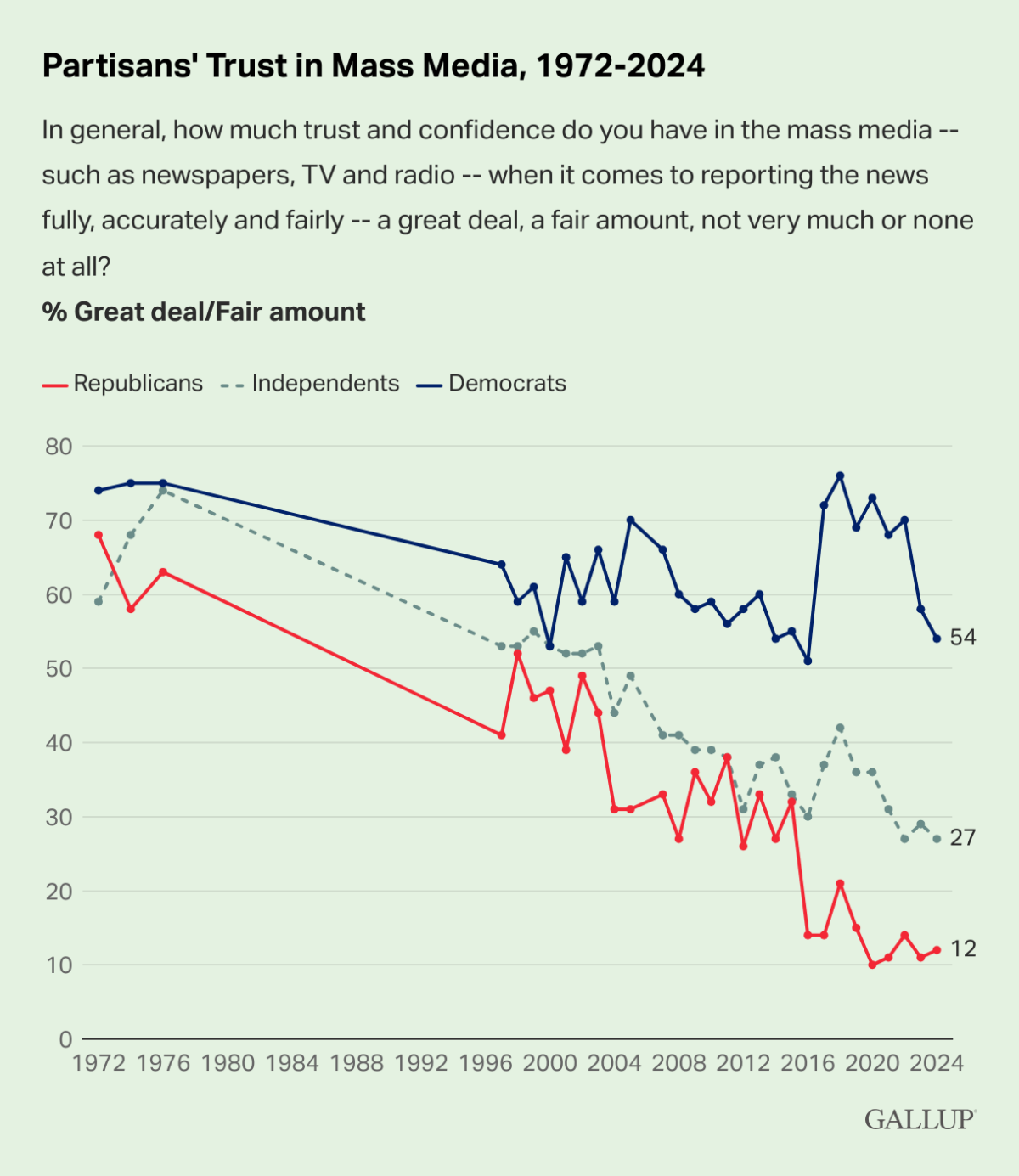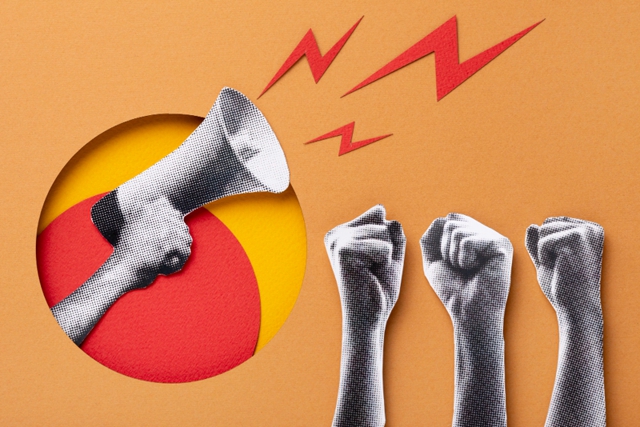Unelected globalists are teaming up with legacy media to brainwash content creators into thinking like them: perspective
UNESCO and the Knight Center for Journalism launch training courses, e-books, and surveys on disinformation and hate speech for influencers and content creators, big and small.
Last month, UNESCO published the results of a survey called “Behind the Screens: Insights from Digital Content Creators” that concluded that among 500 content creators in 45 countries that had a minimum of one thousand followers, 62 percent said they did “not carry out rigorous and systematic fact-checking of information prior to sharing it” while 73 percent expressed “the wish to be trained to do so.”
And lo and behold! UNESCO and the Knight Center for Journalism in the Americas have launched a re-education course to brainwash independent creators into thinking like unelected globalists and the legacy media, whose credibility are at an all-time low.
“The journalism industry is on high alert as news audiences continue to migrate away from legacy media to social media, and many young people place more trust in TikTokers than journalists working at storied news outlets”
UNESCO & Knight Center for Journalism, “Content Creators and Journalists: Redefining News and Credibility in the Digital Age,” October 2024

“Respondents to the survey expressed interest in taking UNESCO’s free online course designed to equip participants with media and information literacy skills and knowledge”
UNESCO, “Behind the Screens: Insights from Digital Content Creators,” November 2024
To get an idea of the make-up of those 500 content creators that were surveyed in the UNESCO study:
- 68 percent were nano-influencers — those with 1,000 to 10,000 followers
- 25 percent were micro-influencers — those with 10,000 to 100,000 followers
- 5.4 percent were macro-influencers — those with 100,000 to 1,000,000 followers
- 1.6 percent were mega-influencers — those with over 1,000,000 followers
Only 12.2 percent of the 500 people surveyed produced content under the category of “current affairs / politics and economy” while the majority covered “fashion/lifestyle” (39.3 percent), “beauty” (34 percent), “travel and food” (30 percent), and “gaming” (29 percent).
“Equip yourself to combat online misinformation, disinformation, hate speech, and harmful AI content. Collaborate with fellow journalists and content creators to promote transparency and accountability on digital platforms, empowering your audience with the media and information literacy skills they need to navigate today’s information landscape”
UNESCO & The Knight Center for Journalism in the Americas, “Digital Content Creators and Journalists: How to Be a Trusted Voice Online,” November 2024
In addition to the survey and the online course called “Digital Content Creators and Journalists: How to Be a Trusted Voice Online,” UNESCO and the Knight Center also published an e-book in October called “Content Creators and Journalists: Redefining News and Credibility in the Digital Age.”
This pyramid of propaganda is billed as empowering influencers to be more credible and resilient, but these efforts are also aimed at turning independent content creators into talking heads for the establishment.
“Despite their expanding outreach, many digital content creators who work independently face significant challenges including the lack of institutional support, guidance, and recognition”
UNESCO, “Behind the Screens: Insights from Digital Content Creators,” November 2024
How can an independent content creator remain independent if he or she needs institutional support, guidance, and recognition?
This is an attempt by the United Nations to take independence away from the equation, so that its messaging becomes indistinguishable from mainstream, establishment narratives.
And between the survey and the e-book, there is not one single solitary example of disinformation or hate speech — save perhaps the claim that denying official climate change narratives is considered disinformation, but that’s highly debatable.
“Threats to collective climate action are often perpetuated not only by individual creators but by industries, like fossil fuels, that actively shape public discourse to their advantage”
UNESCO & Knight Center for Journalism, “Content Creators and Journalists: Redefining News and Credibility in the Digital Age,” October 2024
Speaking of climate change, the e-book contains a lengthy chapter called “Content Creators and Climate Change” that is entirely dedicated to pushing climate activism while claiming climate change disinformation is often perpetuated by coordinated campaigns from fossil fuel industries.
The UNESCO documents place heavy emphasis on disclosing who’s funding content creators while ignoring its partner, the Chinese Communist Party’s (CCP), and its alleged influence over UNESCO.
“The Chinese Communist Party uses UNESCO to ‘rewrite history’ and to ‘legitimize the party’s rule over regions with large ethnic minorities'”
US House Foreign Affairs Committee Chairman Michael T. McCaul, Letter to Secretary Blinken Regarding Decision to Rejoin UNESCO, October 2023
When held to a mirror, UNESCO comes off as little more than hypocritical with massive conflicts of interests of its own.
“One of the biggest ethical questions is knowing from where content creators derive their income”
UNESCO & Knight Center for Journalism, “Content Creators and Journalists: Redefining News and Credibility in the Digital Age,” October 2024
At the same time, UNESCO points readers towards organizations like factcheck.org, which itself is funded by the likes of the US State Department and the Robert Woods Johnson Foundation, the latter of which holds approximately $2 billion of stock in COVID vaccine manufacturer J&J, according to US rep Thomas Massie.
In January 2021, UNESCO, the WHO, UNDP, EU, and the Knight Center for Journalism in the Americas ran a similar type of propaganda campaign for so-called COVID vaccine disinformation training for journalists as they are now doing for so-called climate change disinformation for content creators.
Another goal of UNESCO and the Knight Center is to create an environment where content creators snitch on one another under the guise of “hate speech.”
“Among those targeted by hate speech, most chose to ignore it (31.5%). Only one-fifth (20.4%) reported it to social media platforms. This indicates an area where UNESCO and its partners could provide valuable training for digital content creators on how to effectively address and report hate speech”
UNESCO, “Behind the Screens: Insights from Digital Content Creators,” November 2024
In other words, the UN is partnering with journalists to teach influencers how to become victims that need protection.
Hey! content creators. Were you aware that any criticism against the propaganda that we’ve planted within you means that you were a victim of hate speech? No? Well climb onboard and let’s “effectively address and report hate speech!”
Image Source: Freepik












